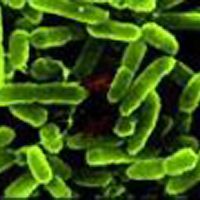Article
Root of Lethal Bacterial Infection, Iron Overload Disease Link Identified
Author(s):
For individuals with hereditary hemochromatosis, University of California, Los Angeles (UCLA) researchers believe increased vulnerability to deadly bacteria is due to their lack of a hormone called hepcidin.

For individuals with hereditary hemochromatosis, University of California, Los Angeles (UCLA) researchers believe increased vulnerability to deadly bacteria is due to their lack of a hormone called hepcidin.
A genetic condition marked by an overproduction of iron in the blood and tissue, hereditary hemochromatosis patients’ lack of hepcidin causes them to store excess quantities of iron — which can persist for decades before being detected — according to a UCLA press release.
Commonly found in warm salt water or raw, tainted, shellfish, people with a weakened immune system, chronic liver disease, or hereditary hemochromatosis are at extreme risk of the Vibrio vulnificus bacteria — with a 50%mortality rate upon infection — the release also mentioned.
When infecting hepcidin-deficient mouse models with the bacteria, the researchers noted the bacteria spread faster and became more aggressive than in normal mice, and resulted in more cases of death.
Additionally, the authors found 2 methods of possible treatment: decreasing dietary iron in affected mice or the utilizing a medication called minihepcidin. However, they found lowering iron only partially remedied Vibrio vulnificus’ toxicity.
“Additionally, timely administration of hepcidin agonists to hepcidin-deficient mice induces hypoferremia that decreases bacterial loads and rescues these mice from death, regardless of initial iron levels,” they wrote in Cell Host & Microbe.
“We found that hepcidin is required for resistance to a Vibrio vulnificus infection,” said the study’s lead author Joao Arezes, a visiting graduate student from the University of Porto in a statement. “The development of the treatment tested in mouse models could reduce the high mortality rate of this disease.”
In the future, the team plans to investigate why Vibrio vulnificus becomes deadly in iron-abundant patients, and whether other bacterium has a similar type of relationship.



